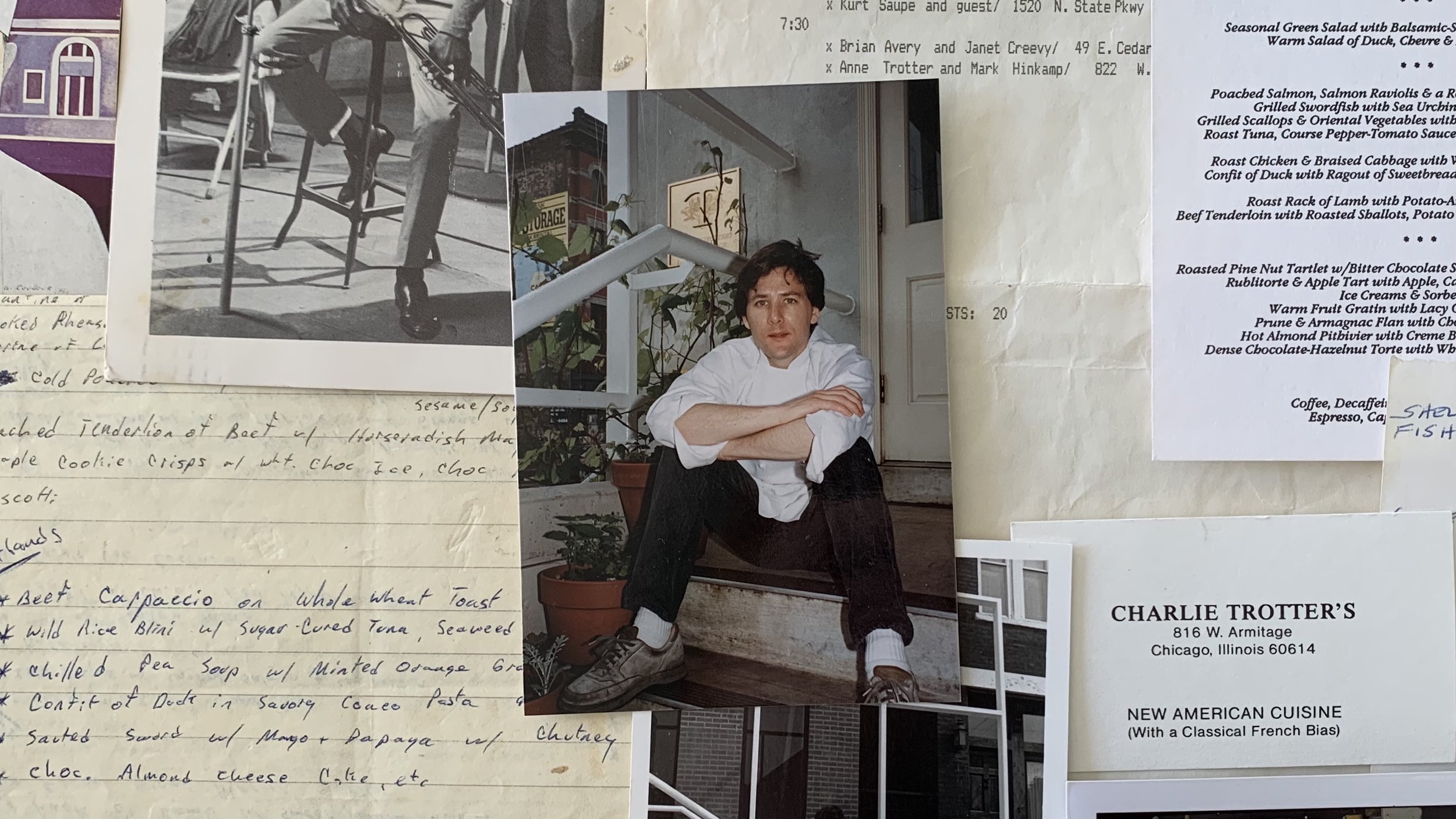Love, Charlie: The Rise and Fall of Chef Charlie Trotter - A Cautionary Kitchen Tale
Liam Lacey
Rating: B
“Luxury is the necessity that begins where necessity ends,” said Coco Chanel, a quote I think I first learned from the frothy Netflix series, Emily in Paris, about an American ingenue in the French luxury industry.
The wish-fulfillment series, created by Sex and the City’s Darren Star, features its heroine (Lily Collins) dressed in a series of over-the-top high-fashion outfits, who astonishes her French elders with her brash American ingenuity, drinks excessively and has a revolving cast of gay and gal pals and potential lovers Among the latter: an especially a sensitive, artistically pure chef named Gabriel.
The series, a frequent subject of essays on “hate-watching” television, highlights our ambivalence about excess and luxury. Does having too much fun and success require penance?
The thought came to mind while considering the weighty title of Rebecca Halpern’s documentary, Love, Charlie: The Rise and Fall of Chef Charlie Trotter, which errs in drawing moral lessons from the late Chicago restauranteur’s complicated legacy.
You can see Charlie Trotter in a self-mocking cameo in the 1997 Julia Roberts rom-com My Best Friend’s Wedding, where he’s threatening a kitchen assistant: “I will kill your whole family if you don’t get this right!”
That excerpt is included in Halpern’s documentary, Love, Charlie, in which she makes the case that he became swallowed up by his own persona. She offers a trove of archival footage and talking heads interviews with many who knew Trotter, including his first wife, Lisa Ehrlich, and fellow celebrity chefs, Emeril Lagasse, Wolfgang Puck and Grant Achatz. The latter went from Trotter’s cowed employee to becoming his cross-town rival.
As was shown by the My Best Friend’s Wedding scene, Trotter really liked to advertise his misanthropy. A clip from another interview sees him declaring: “My philosophy has always been, if it weren’t for the employees and if it weren’t for the customers, the restaurant business would be the greatest business in the world.”
For about 25 years, that cranky genius persona worked well for him. Generously supported by his wealthy father, he toured the world for a few years, visiting great restaurants and finally deciding to open his own restaurant in a Chicago townhouse in 1987, modelled on the great kitchens of Europe.
He soon put the Chicago food scene on the map with his restaurant, Charlie Trotter’s, went on to have his own PBS show and published more than a dozen cookbooks.
Unfortunately, he over-expanded his operation with restaurants in Cabo San Lucas and Las Vegas, businesses which suffered from the 2008 economic crash.
His reputation slipped in the 2000s, and he faced lawsuits from employees who felt cheated out of their wages. He also suffered from health problems, including an aneurism and hypertension. He died of a stroke in 2013 at the age of 54, a year after closing his Chicago restaurant.
The film makes clear that Trotter was on the leading edge in several ideas: sourcing locally, developing microgreens, creating vegetarian menus, using sumptuous food photography and having a special table in the kitchen, where patrons could watch the staff working.
After watching the cruel force-feeding of geese, he stopped serving foie gras. He also did a great deal of charity work. But as he approached the 25th anniversary of the restaurant, he grew more volatile and, according to friends, began to experience personality changes that may have been related to his medical condition.
Director Halpern has described her film as a cautionary tale about the pursuit of excellence. And if Love, Charlie isn’t really that, it’s still a lively character study. What’s most interesting here is the glimpses of insight into Trotter’s unusual mind. Through interviews with his first wife, we hear of Trotter as a socially awkward student she first met in 1981.
She describes how they spent a long time in the friend zone, travelling together, before she seduced him. She shows off some of his lengthy post-cards she’d preserved, written in minute scrawl. She tells how she quit school to serve as his first dining room manager, how he dropped his familiar name “Chuck” to become the singularly focused Charlie Trotter. Four years after they married, he shunted her aside when he decided it was more important to be a great chef than a good husband.
To use a colloquial term, the guy was wired differently, a difference that worked in his favour for a long time until it didn’t.
Love Charlie: The Rise and Fall of Chef Charlie Trotter. Directed and written by Rebeca Halpern. With Charlie Trotter, Lisa Ehrlich, Emeril Lagasse, Wolfgang Puck and Grant Achatz. The film opens at Hot Docs Ted Rogers Cinema and in Vancouver on Jan. 6 at the VIFF Centre.



